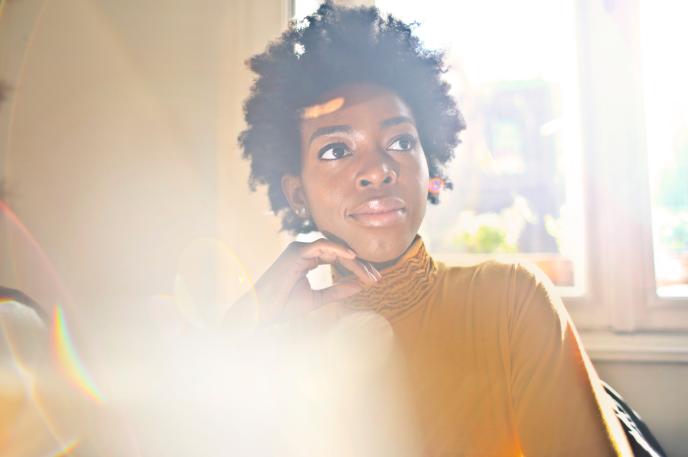
The fallacy of the Strong Black Woman
May 12, 2021
This blog was written as part of Charlotte Mecklenburg Library's Black Lives Matter program initiative. Learn more about the program and corresponding events here.
You have seen her. You may know her. She may even be you. She is fierce and fearless and amazingly resilient. She is the backbone of her family and a pillar in the community. She is unflappable, unfailing. She is incredible! She is the Strong Black Woman and she is…a myth.
Singer-songwriter Alicia Keys penned “Superwoman” in 2007, a single from her third studio album, As I Am. The song, which quickly became a girl-power anthem, earned Keys both a Grammy and NAACP Image Award Nomination. It became the intro at WNBA games with a special video that featured clips of Keys performing the song in concert, interspersed with videos of players in games, practices, and personal lives. While the ballad is catchy, inspirational, and a mantra even, should it be? By listening closely to the lyrics, it becomes apparent, despite the façade, the heroine is overburdened with life and with hiding the fact that she is, in fact, overburdened. Sadly, the same is true for many Black women who strive to live up to the Strong Black Woman trope.
On May 22, 1962, Malcolm X addressed a group of Black people in Los Angeles, California, in which he spoke to the plight of Black women. He said, “The most disrespected person in America is the Black woman. The most unprotected person in America is the Black woman. The most neglected person in America is the Black woman.” This remains one of his most often quoted quotes by Malcolm X. The snippet resonates with Black women so much that Beyoncé sampled it in her 2016 Lemonade album.
Often referenced without context, this highly quoted portion of Malcolm X’s speech was delivered during the funeral service of Ronald Stokes, a man killed by LAPD. The remarks were about Black women and self-hate and parallels an excerpt of Zora Neale Hurston’s Their Eyes Were Watching God. She wrote, “The mule finds itself tortured and burdened with hardship for no reason other than the sake of burdening it. With no voice or agency of its own, the mule reminds her of the black woman in America who must suffer and endure.” But why must Black women endure? The stigma surrounding mental health in the Black community often prevents Black people from seeking professional help. Unfortunately, cultural norms dictate that Strong Black Women suffer in silence.
The societal stigma surrounding mental illness is not the only barrier preventing Black women from seeking help. Other obstacles include financial barriers and the lack of adequate providers who have experience with the unique circumstances that Black women face, among others. According to the Substance Abuse and Mental Health Services Administration, Black women are more likely to report feeling sad and hopeless sometimes. Still, very few Black adults (men and women) receive the mental health care they need.
Fortunately, people like Dr. Joy Harden Bradford, founder of Therapy for Black Girls, are working diligently to make therapy more relevant and attainable for Black women. Its website describes Therapy for Black Girls as “an online space dedicated to encouraging the mental wellness of Black women and girls.” The site includes a blog, a podcast, and most importantly, a directory of over 800 providers throughout the United States.
Mental health transcends psychological and emotional well-being. All too often, Black women take on too many burdens of life without adequate self-care, which can lead to problems with one’s physical well-being. Left unchecked, stress, anxiety, and depression can lead to obesity, leading to hypertension (high blood pressure), cardiovascular disease, and other issues.
The idea of the Strong Black Woman is a conundrum indeed as there is inherent good in strength, Blackness, and womanhood, but when that ideology does more harm than good, solutions should be explored. Black women are often expected to pour so much into their families, careers, churches, and communities without pouring back into themselves. As the saying goes, “you can’t pour from an empty cup.”
To learn more about issues affecting the mental health of Black women, please see the below reading list:
Mental Health Resources for Strong Black Women
--
This blog post was written by Alesha Lackey, children’s services manager at Allegra Westbrooks Regional Library.
